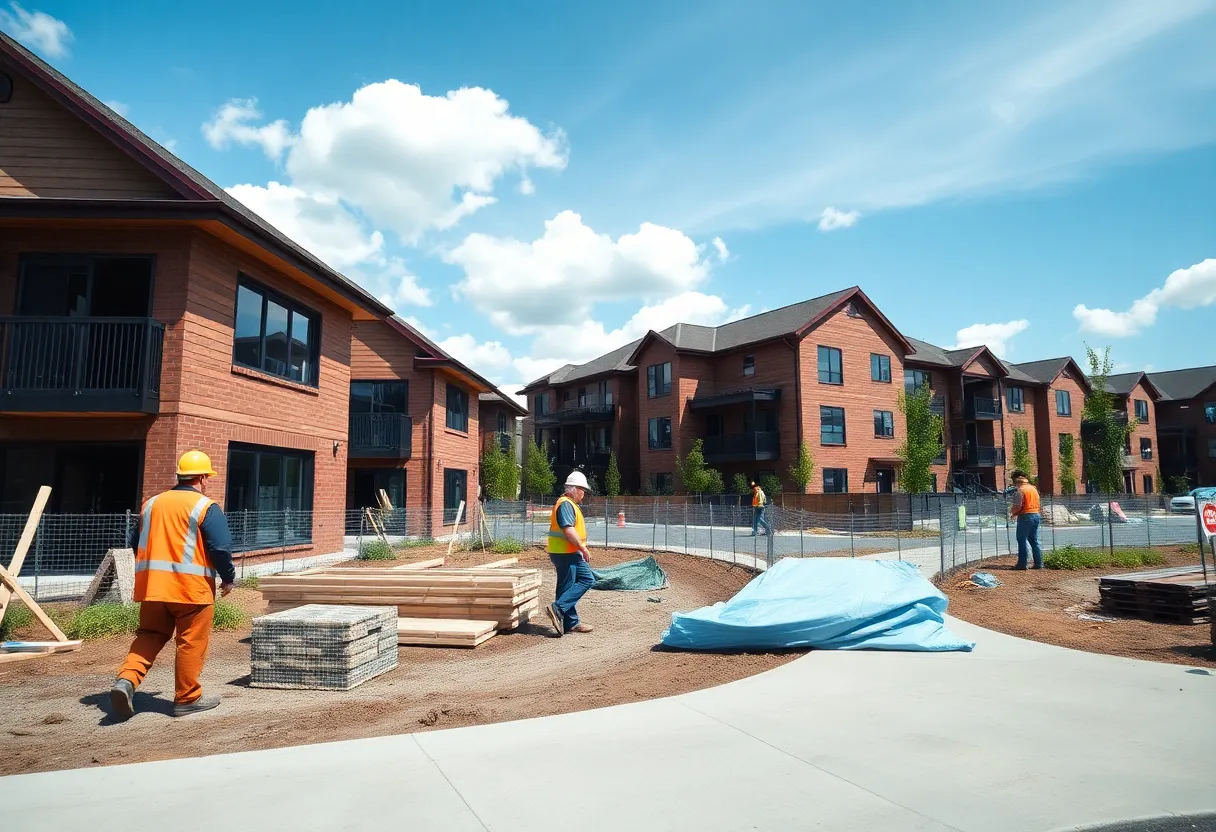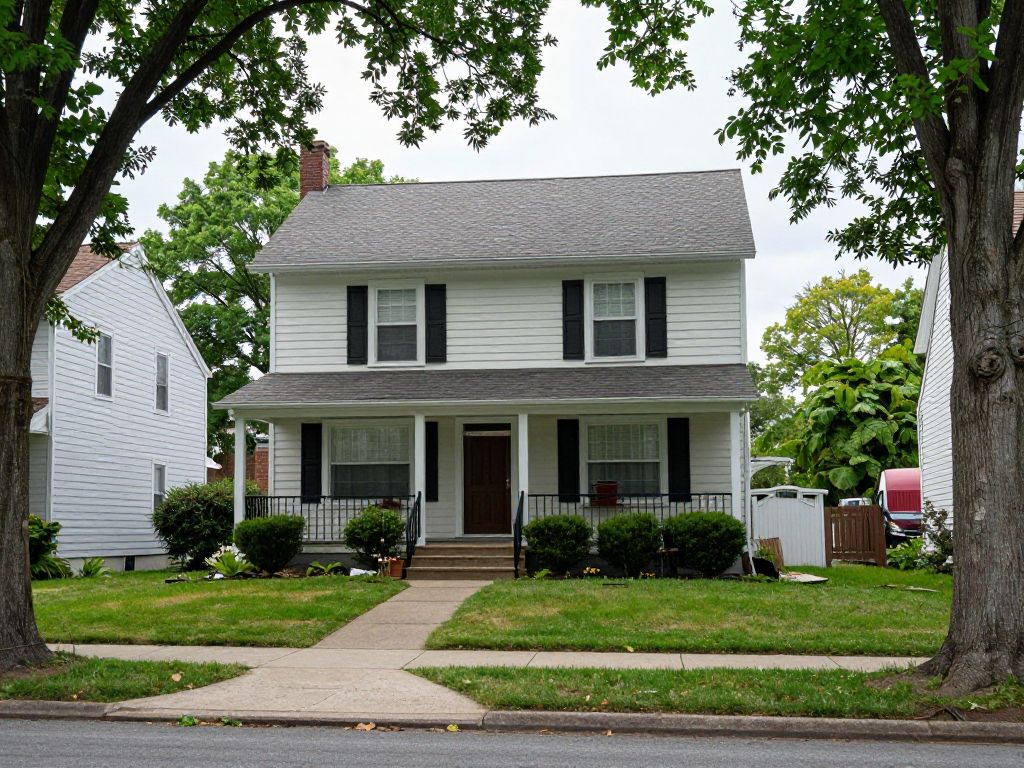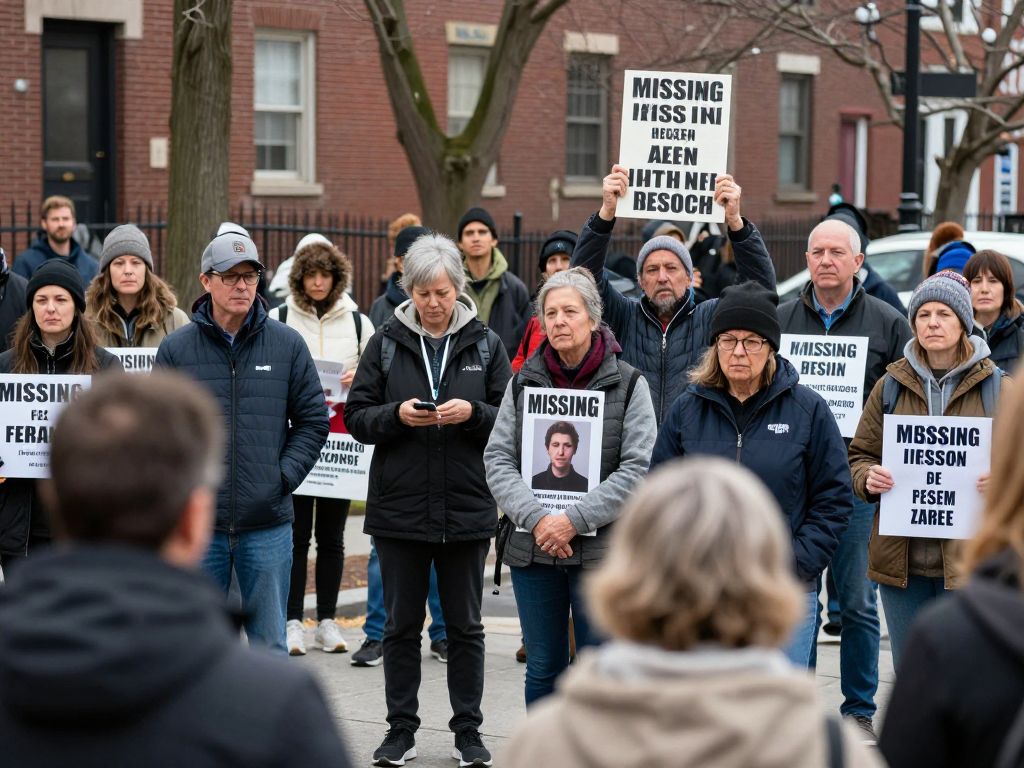Boston, September 17, 2025
News Summary
Massachusetts Governor Maura Healey has proposed new regulations that aim to expedite environmental reviews for certain housing projects. The changes would allow qualifying developments to use a simplified Environmental Notification Form (ENF) instead of a full Environmental Impact Report (EIR), reducing review times from over a year to about 30 days. The proposal seeks to decrease bureaucratic delays that contribute to higher housing costs while still ensuring environmental protections are maintained.
Boston
Governor Proposes Faster Environmental Reviews to Speed Housing Construction
Massachusetts Governor Maura Healey unveiled a proposal to significantly shorten environmental review requirements for qualifying housing projects, aiming to accelerate construction and reduce bureaucratic delays that contribute to higher costs and stalled developments. Under the draft regulations, certain projects that previously required a detailed Environmental Impact Report (EIR) would be allowed to proceed with a simpler Environmental Notification Form (ENF), cutting review times from more than one year to approximately 30 days for eligible cases.
Key details and immediate effects
- Expedited review timeline: Draft regulations reduce review windows for qualifying projects to about 30 days, compared with review periods that have often exceeded one year.
- Eligibility criteria: Projects must be at least 67% residential, meet a specified density threshold, and be located outside designated flood zones to qualify for the streamlined process.
- Scope of change: An estimated 23% of projects filed under the Massachusetts Environmental Policy Act (MEPA) since 2022 would shift from requiring an EIR to an ENF under the proposed rules.
- Environmental balance: The regulations include provisions intended to maintain environmental protections while making the review process quicker for approved project types.
Supporting details and expert perspectives
State officials framed the proposal as part of a broader administrative push to remove unnecessary procedural obstacles to housing development and to help contractors and builders navigate a difficult economic environment. A recent report from the Unlocking Housing Production Commission identified lengthy environmental reviews as a recurring cause of project delays, unexpected costs, and financial infeasibility for many developers.
Academic observers noted that clearer and faster regulations can help reduce procedural friction, but they also cautioned that the changes alone may not resolve deeper economic barriers. Analysts highlighted ongoing issues such as high construction and capital costs, as well as developers delaying projects amid economic uncertainty, which may limit the immediate impact of faster permitting on overall housing production.
Specific procedural changes
- From EIR to ENF: Approved qualifying projects would move from preparing a comprehensive Environmental Impact Report to submitting an Environmental Notification Form, a more concise and quicker process.
- Ecological restoration simplifications: The draft regulations also include streamlined review paths for certain ecological restoration activities, such as cranberry bog restorations and partial dam removals.
- Public input and timelines: Public comment is being solicited on the draft regulations, with virtual hearings scheduled for October 14 and October 15 to gather feedback from stakeholders and residents.
Implications and limitations
Policy advocates view the proposal as a constructive administrative step that could lower permitting barriers and reduce time-to-construction for a subset of projects that meet the eligibility requirements. However, economic factors remain a critical constraint; experts emphasize that lower review times do not automatically overcome high material and financing costs or uncertain market conditions that currently cause many developers to pause or cancel projects.
Officials say the administration intends to pursue the expedited review process alongside other housing measures, using a combination of regulatory adjustments and policy tools to try to increase housing availability and affordability while preserving environmental safeguards.
Next steps
The draft regulations are open for public comment during the formal review period. Virtual hearings on October 14 and October 15 will provide opportunities for municipalities, developers, environmental groups, and members of the public to submit feedback. State regulators will consider public input before finalizing any changes to MEPA implementation and related procedural guidance.
Frequently Asked Questions
What is changing under the proposed regulations?
The state proposes allowing qualifying housing projects to use a shorter Environmental Notification Form (ENF) instead of a full Environmental Impact Report (EIR), reducing formal review times from over a year to about 30 days for eligible projects.
Which projects qualify for expedited review?
To qualify, projects must be at least 67% residential, meet a specific density threshold set in the rules, and be located outside flood zones. Certain ecological restoration projects may also receive simplified review.
How many projects would be affected?
Approximately 23% of projects filed under MEPA since 2022 would likely qualify to submit an ENF instead of an EIR under the proposed regulations.
Will environmental protections be reduced?
The proposed rules are designed to expedite review while maintaining environmental safeguards. Specific protections and oversight provisions remain part of the draft regulations, and public feedback will help shape final details.
How can the public provide input?
Public comments are being accepted during the draft rulemaking period, and virtual hearings are scheduled for October 14 and October 15 for stakeholders to present feedback directly to regulators.
Quick Reference Table
| Topic | Details |
|---|---|
| Effective change | Shift from EIR to ENF for qualifying projects; reviews cut to ~30 days |
| Eligibility | At least 67% residential, meet density threshold, outside flood zones |
| Projects affected | About 23% of MEPA filings since 2022 estimated to qualify |
| Ecological adjustments | Streamlined reviews for certain restorations (e.g., cranberry bogs, partial dam removals) |
| Public comment | Virtual hearings on October 14 and 15; written feedback accepted during rulemaking |
| Limitations | Does not directly address high construction and capital costs that hinder project starts |
Deeper Dive: News & Info About This Topic
HERE Resources
Mayor Wu Proposes 700-Foot Skyscrapers for Downtown Boston
Boston Reviews Exam School Admissions Policy Amid Equity Concerns
Boston’s Proposed Zoning Changes Could Allow Skyscrapers
Rising Apartment Vacancies in Boston Near Colleges
Boston Launches Office-to-Residential Conversion Program
Massachusetts Communities Push for Local Real Estate Transfer Fee
Massachusetts Voters May Decide on Rent Control Measure
Massachusetts Rent Control Ballot Measure Advances
Boston’s Office Market Shows Signs of Stabilization
Massachusetts Governor Proposes Housing Construction Reforms
Additional Resources
- Boston.com: Healey Wants to Speed Up State Review to Encourage Housing
- Bowditch: Massachusetts Announces Proposed Changes to MEPA Regulations
- Recorder: Massachusetts Housing Environmental Review
- Boston Agent Magazine: Environmental Regulation Housing Governor Healey
- ConnectCRE: Healey Proposes Fast-Tracking Environmental Review for Housing Projects
- Wikipedia: Environmental Impact Statement
- Google Search: Housing Policy Massachusetts
- Google Scholar: Environmental Policy Massachusetts
- Encyclopedia Britannica: Environmental Impacts
- Google News: Massachusetts Housing Policy

Author: STAFF HERE BOSTON WRITER
The BOSTON STAFF WRITER represents the experienced team at HEREBoston.com, your go-to source for actionable local news and information in Boston, Suffolk County, and beyond. Specializing in "news you can use," we cover essential topics like product reviews for personal and business needs, local business directories, politics, real estate trends, neighborhood insights, and state news affecting the area—with deep expertise drawn from years of dedicated reporting and strong community input, including local press releases and business updates. We deliver top reporting on high-value events such as Boston Marathon, Head of the Charles Regatta, and Boston Harborfest. Our coverage extends to key organizations like the Greater Boston Chamber of Commerce and Associated Industries of Massachusetts, plus leading businesses in finance, biotech, and insurance that power the local economy such as Fidelity Investments, Biogen, and Liberty Mutual Insurance. As part of the broader HERE network, we provide comprehensive, credible insights into Massachusetts's dynamic landscape.





